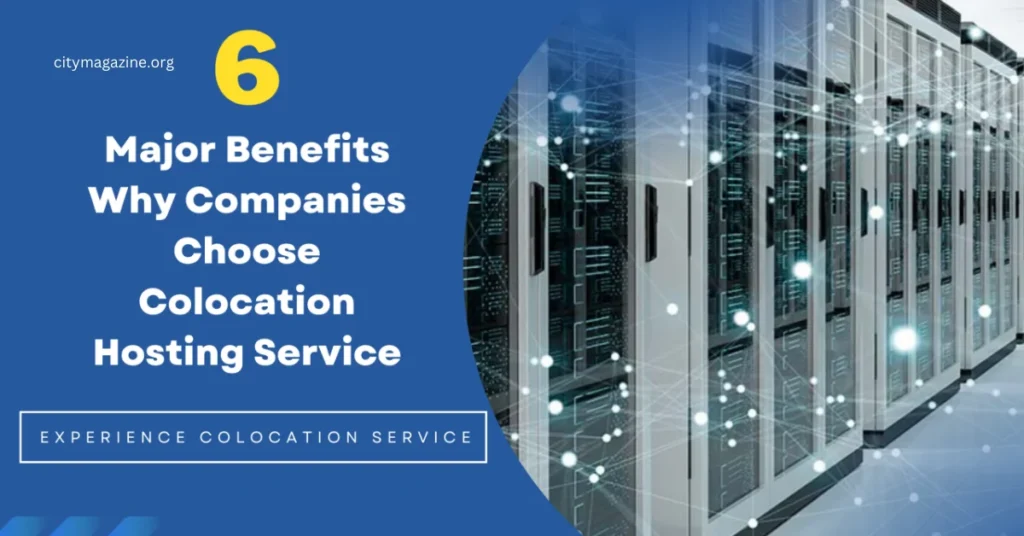Nowadays, businesses have a range of options when it comes to storing their critical
data and applications. While some opt for the public cloud, others prefer keeping their data on-
premises.
In addition, there is a third alternative for storing data: third-party data centres.
Organizations benefit immensely by incorporating colocation into their IT strategy. For those
who don’t know, colocation is an arrangement where a company rents rack space to house its
servers in a third-party data centre.
The colocation service provider assumes the responsibility
of managing these servers on a day-to-day basis, offering power, cooling, and connectivity,
while the client maintains the ownership and control of the servers.
This means the client is free to do anything they want with the server, including resolving any issues that may arrive in due course.
That said, choosing a colocation service provider, moving your equipment into their facility, and
running the same costs a lot of time and money. If you make the wrong move,
moving out can exceed the cost of choosing a service provider.
In other words, you cannot afford to go wrong when choosing a colocation provider. In this blog, we will talk about the factors you should consider when choosing a Colocation in India. So, let us dive you in and discuss about colocation hosting
service.
1) Physical Location
One of the key considerations when choosing a colocation provider is the facility’s physical location. This depends largely on the requirements of your business. Every business follows
a different approach. If you use the data centre for storage or cloud access, ensure the
facility is close to your office.
When the facility is within a few miles of your office, your staff can easily drive down to the
facility and do the necessary maintenance, repair, or upgrade work whenever required.
If, on the other hand, you are looking for a facility to provide services to customers, an edge
data centre located close to the end-users would be a good fit. This way, any latency
issues would be done away with.
2) Connectivity and Carrier Diversity
Colocation goes beyond just housing your servers in a data centre. Without a reliable
and redundant internet connection, your performance will suffer. Therefore, it is important to
go for a data centre offering a range of connectivity options. This way, your business will
have the resources it needs.
Carrier-neutral data centres allow clients to connect with different internet service providers
(ISPs) instead of being locked up with a single network provider. Carrier diversity reduces the cost on account of competitive pricing and creates network redundancy, allowing
clients to switch their carriers if needed.
3) Compliance
Every business must comply with certain regulations that apply to their area of
operation. These may include PCI DSS, HIPAA, SOC 1, 2, 3, ISO 27000, etc.
While your organization is eventually responsible for fulfilling these regulations, audits and
security controls deployed by your data centre can simplify the task for you. So, when choosing
a colocation service provider, prioritize providers that regularly undergo audits by third parties.
Data centres compliant with standards such as HIPAA and PCI DSS can help maintain the
security of your infrastructure. Ensure you check your prospective vendor’s attestation reports before signing up for their service. Also, find if they are willing to lend support during.
4) Security
Security encompasses not only the physical security aspect of your facility but also the security
tools and data protection protocols that have been put in place.
When assessing the security aspect of a colocation facility in India, here are a few things you
can look for:
● Secure Location: The facility should be in a place not prone to natural disasters. The
premises should have been secured with fencing or high walls and have a single entry point.
● Secure Access: There should be stringent guidelines on who can access the facility and
when. The identity of all visitors should be confirmed through their IDs, biometrics, etc.
● Security Tools: High-resolution cameras, fire alarms, multi-factor authentication
checkpoints, and cabinet locks should be in place to monitor the premises rigorously.
5) Power and Cooling
Your hardware requires adequate power, cooling, and humidity to function optimally. So,
your service provider should meet the recommended range for each of these.
Cooling: Cooling is a crucial aspect of data centre management, as overheating often leads to equipment failure. Your colocation provider should have employed best practices
for optimal cooling.
These may include hot and cold aisles or a raised floor layout. Also, it is good to have equipment for real-time air quality monitoring.
Power: Power accounts for a large percentage of the overall data centre cost.
Choosing a provider with lower electricity charges will lower the total cost of your colocation
plan.
6) Technical Support
Regardless of how efficiently you run your operations, you may face a glitch at any time.
Having a partner who responds to and resolves your issues quickly and efficiently can immensely help.
Find the level of technical support your prospect offers. Ideally, technicians should be present
on the data centre premises 24*7*365 so that an issue arising at any point in time can be
addressed immediately. Reliable service providers allow their clients to monitor their hardware
at all times and provide authorized access instantly.
The Final Word
In addition to the aforementioned factors, service level agreements and budgetary
constraints are vital in selecting a colocation provider in India. If you are sceptical, do
not hesitate to clarify your doubts.
Try to get answers to whatever questions you may have in
mind. Also, check references from the provider’s customers and third-party auditors.
Have more questions on colocation services? Scribble your query in the comment section.




